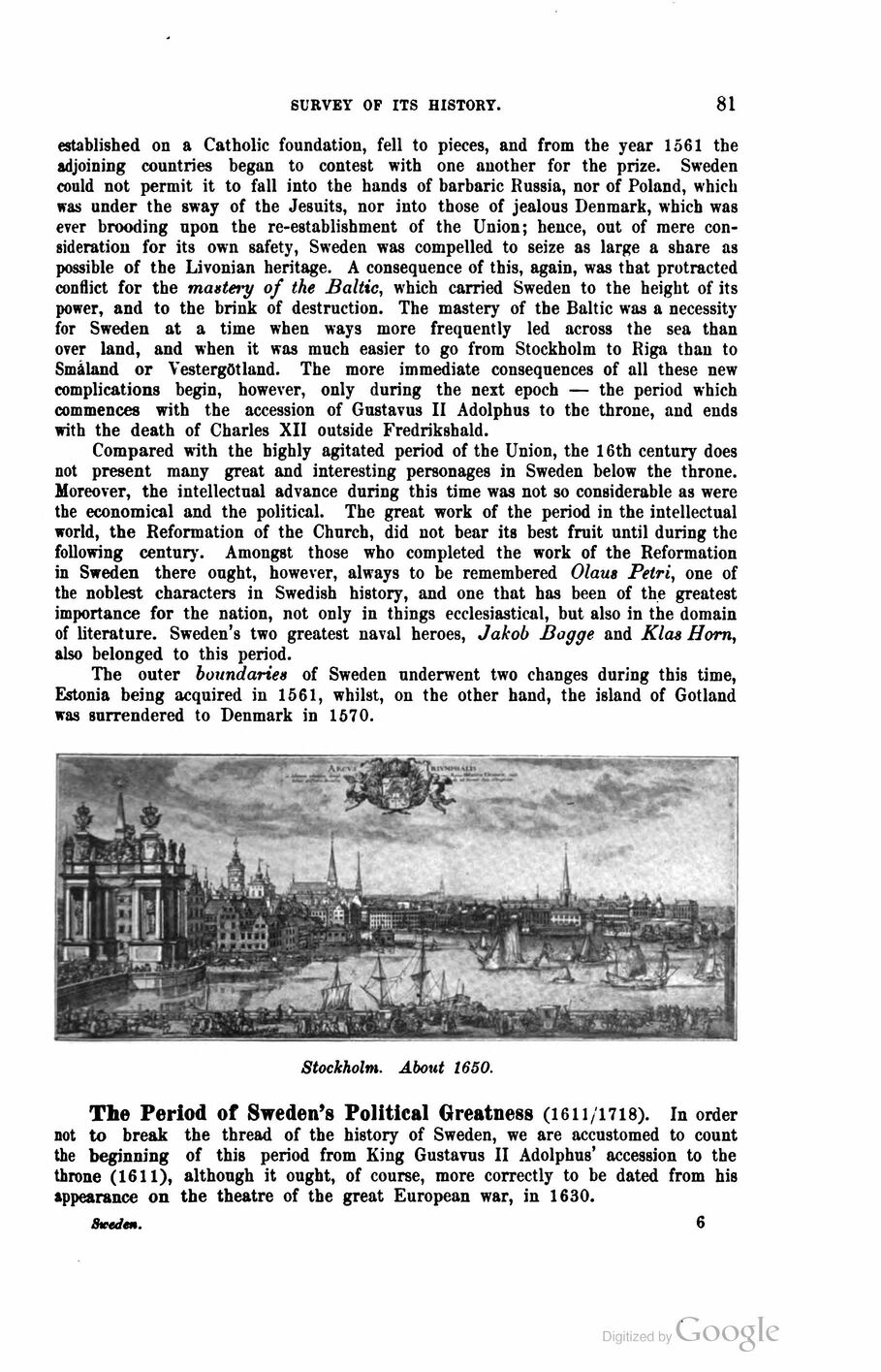
Full resolution (JPEG) - On this page / på denna sida - First part - II. The Swedish People - 1. Survey of its History. By E. Svensén, Author, Stockholm - Modern Times (from 1523 onwards)

<< prev. page << föreg. sida << >> nästa sida >> next page >>
Below is the raw OCR text
from the above scanned image.
Do you see an error? Proofread the page now!
Här nedan syns maskintolkade texten från faksimilbilden ovan.
Ser du något fel? Korrekturläs sidan nu!
This page has never been proofread. / Denna sida har aldrig korrekturlästs.
SURVEY OF ITS HISTORY.
81
established on a Catholic foundation, fell to pieces, and from the year 1561 the
adjoining countries began to contest with one another for the prize. Sweden
could not permit it to fall into the hands of barbaric Russia, nor of Poland, which
was under the sway of the Jesuits, nor into those of jealous Denmark, which was
ever brooding upon the re-establishment of the Union; hence, out of mere
consideration for its own safety, Sweden was compelled to seize as large a share as
possible of the Livonian heritage. A consequence of this, again, was that protracted
conflict for the mastery of the Baltic, which carried Sweden to the height of its
power, and to the brink of destruction. The mastery of the Baltic was a necessity
for Sweden at a time when ways more frequently led across the sea than
over land, and when it was much easier to go from Stockholm to Riga than to
Småland or Vestergötland. The more immediate consequences of all these new
complications begin, however, only during the next epoch — the period which
commences with the accession of Gustavus II Adolphus to the throne, and ends
with the death of Charles XII outside Fredrikshald.
Compared with the highly agitated period of the Union, the 16th century does
not present many great and interesting personages in Sweden below the throne.
Moreover, the intellectual advance during this time was not so considerable as were
the economical and the political. The great work of the period in the intellectual
world, the Reformation of the Church, did not bear its best fruit until during the
following century. Amongst those who completed the work of the Reformation
in Sweden there ought, however, always to be remembered Olaus Petri, one of
the noblest characters in Swedish history, and one that has been of the greatest
importance for the nation, not only in things ecclesiastical, but also in the domain
of literature. Sweden’s two greatest naval heroes, Jakob Bagge and Klas Horn,
also belonged to this period.
The outer boundaries of Sweden underwent two changes during this time,
Estonia being acquired in 1561, whilst, on the other hand, the island of Gotland
was surrendered to Denmark in 1570.
Stockholm. About 1650.
The Period of Sweden’s Political Greatness (16H/1718). In order
not to break the thread of the history of Sweden, we are accustomed to count
the beginning of this period from King Gustavus II Adolphus’ accession to the
throne (1611), although it ought, of course, more correctly to be dated from his
appearance on the theatre of the great European war, in 1630.
Sweden. 6
<< prev. page << föreg. sida << >> nästa sida >> next page >>